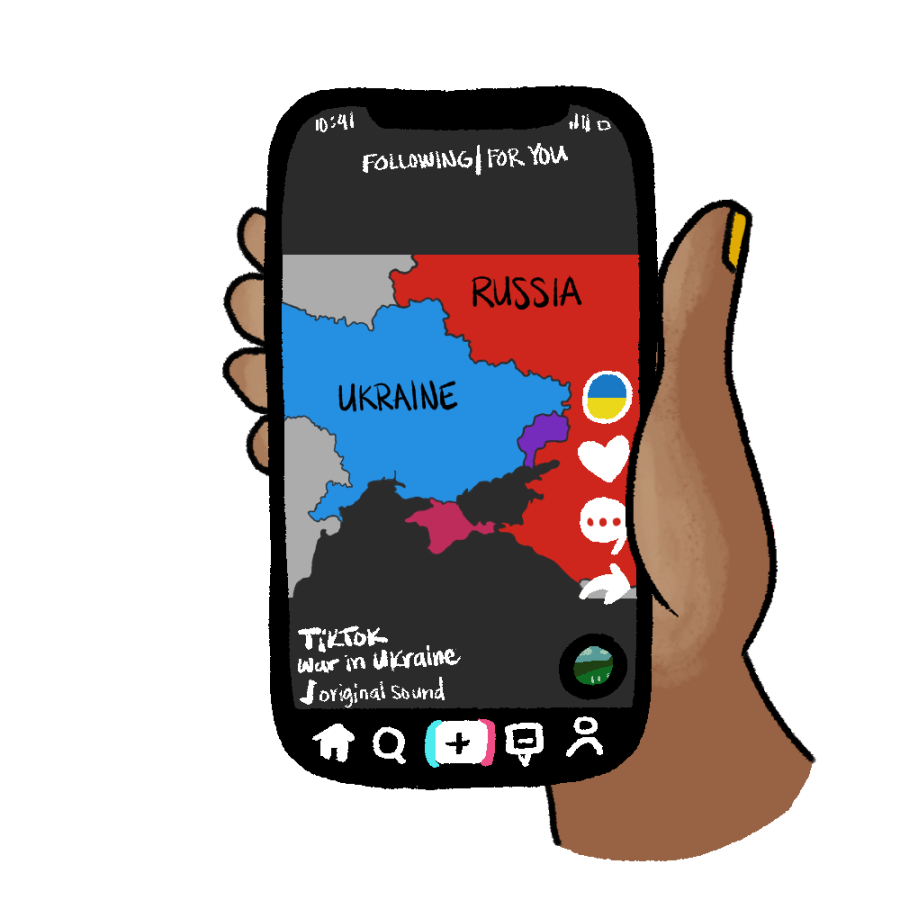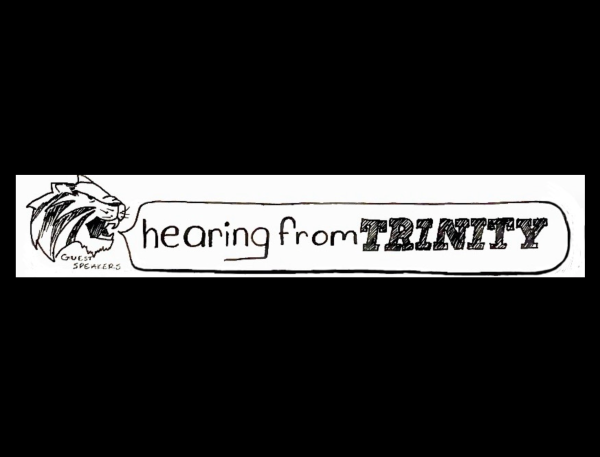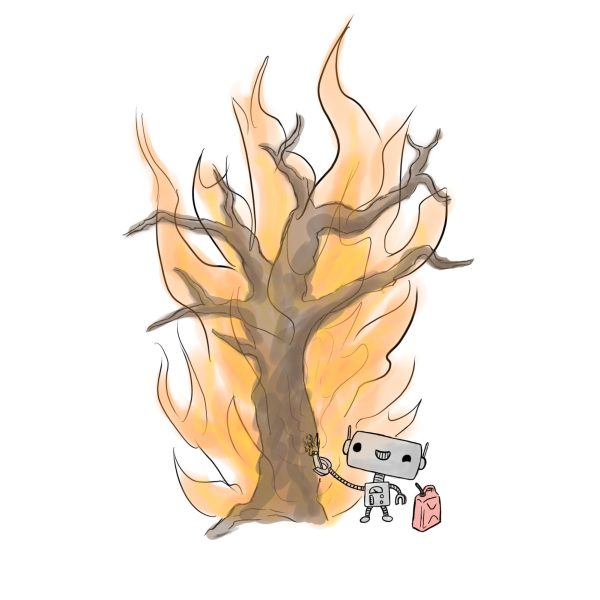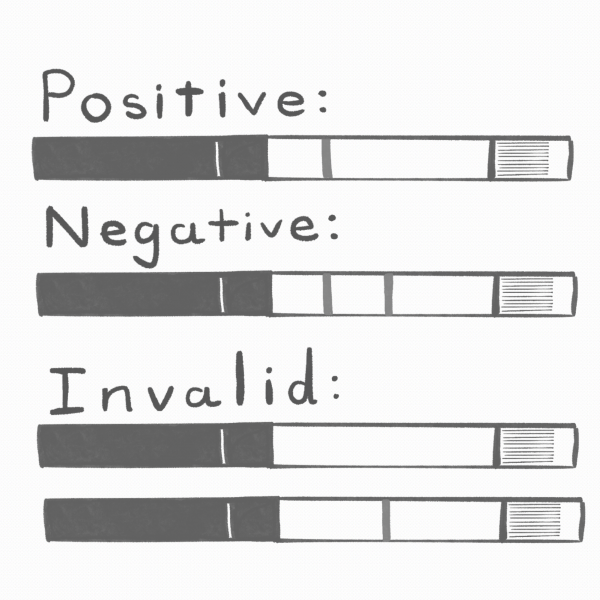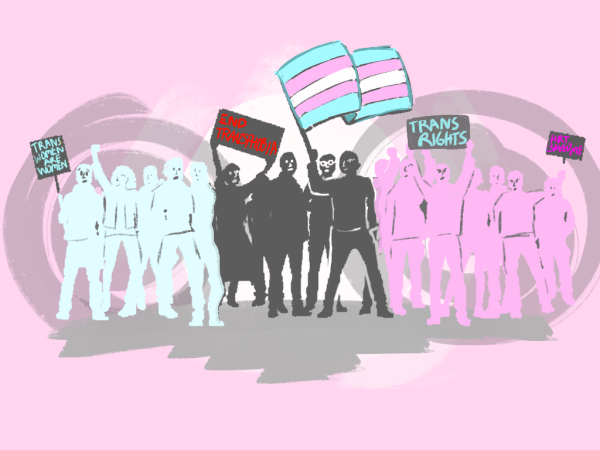War, TikTok and the future of Gen Z
Gen Z was born under the shadows of 9/11, grew up accepting the burden of climate change and matured during COVID. Now, we are seeing a war unfold before our very eyes, witnessing the Ukrainian tragedy on TikTok. We are currently watching a war like never before, with over a billion people keeping up in real-time. To say the least, it’s overwhelming.
Woven through my TikTok feed are countless traumatizing videos depicting Ukrainian soldiers atop tanks, families fleeing to bomb shelters and citizens filming their homes being destroyed by missile strikes and alleged vacuum bombs. Through TikTok, users can see the hardships Ukrainians are facing in the midst of the Russian invasion.
Right now, users are flooded with a constant stream of information concerning the war, factual or not. Considering the fact that many people in Gen Z stay informed through TikTok, myself included, this is problematic.
Many users are capitalizing on this new wartime industry to gain clout with fake “WarToks” by replacing audios or completely staging events, creating a barrage of misinformation. One TikToker, in particular, claimed to have found a crash-landed Russian pilot, filming the “pilot” on his knees in the middle of an empty field. While the situation is possible considering Ukraine has successfully shot down multiple Russian aircraft, the comments are flooded with people arguing it is staged.
In light of misleading TikToks, the White House briefed TikTok influencers on the Ukraine-Russia war in hopes of countering the spread of misinformation. Gen-Z for Change, an organization whose goal is to spread civic engagement and political awareness through social media, helped facilitate this briefing.
While I know not to trust everything on the internet, each video seems to be filmed in real-time by someone directly involved or affected. It is increasingly hard to discern what is real and what is not. Especially since I have never experienced a war, it is hard to understand what it actually looks like, which is why I, like many other users, turn to TikTok.
However, there is a difference between wanting to understand the human impact of conflict and satisfying morbid curiosity. Looking at my own consumption of war TikToks, it’s hard to understand the real reason I am watching.
For one, the first-person perspective creates a connection between myself and the war, providing a deeper understanding than simply reading headlines. As TikTok amplifies the effects of globalization, “WarTok” serves as a form of trauma bonding by watching graphic videos of human beings being uprooted and killed.
However, I am also satisfying the awful, morbid urge to watch homes and lives be destroyed because it is something I will likely never go through in my place of privilege. One study published in the American Psychological Society journal proposes an explanation for this, coined the “threat simulation theory.” This theory suggests that people watch horror films because they are able to safely watch on-screen violence, giving them a safe space to reflect on the frailty of their own life. Similarly, the “forbidden fruit hypothesis,” from media psychologist Andrew Weaver, suggests that people are inclined to watch and consume graphic media because violence is off-limits, fulfilling a curiosity not allowed in everyday life.
Recent events suggest we should get used to the TikTok-ification of global events. During the peak of the Black Lives Matter protests in 2020, TikTok was overrun by videos of protests turning violent, riots ravaging cities and people getting beaten and shot by police. These videos were shocking to watch, but I credit TikTok for my own engagement in the movement, much like my response to the war.
It’s scary living in a time where I can turn on my phone to see a war lay waste to people and cities, then just as quickly turn it off at my convenience. Gen Z’s intimate relationship with global events is a disturbingly powerful force that can band together youth but just as easily tear us apart with lies. Social media keeps our generation close to the world. However, it’s important to remember that our screen provides separation and protection, allowing time to stop and process what we are seeing. Listlessly consuming media undermines any power Gen Z holds over the internet, as Gen Z has a deeper understanding of social media than any other generation. TikTok isn’t going anywhere, so Gen Z must do what we do best: adapt and conquer.

My name is Rachel Oliver (she/her), and I am a junior economics major and urban studies minor. I am the managing editor, and this is my third year working...

I am a senior Art and English double major from San José, California. I also have an accidental Medieval and Renaissance minor that I picked up through...

